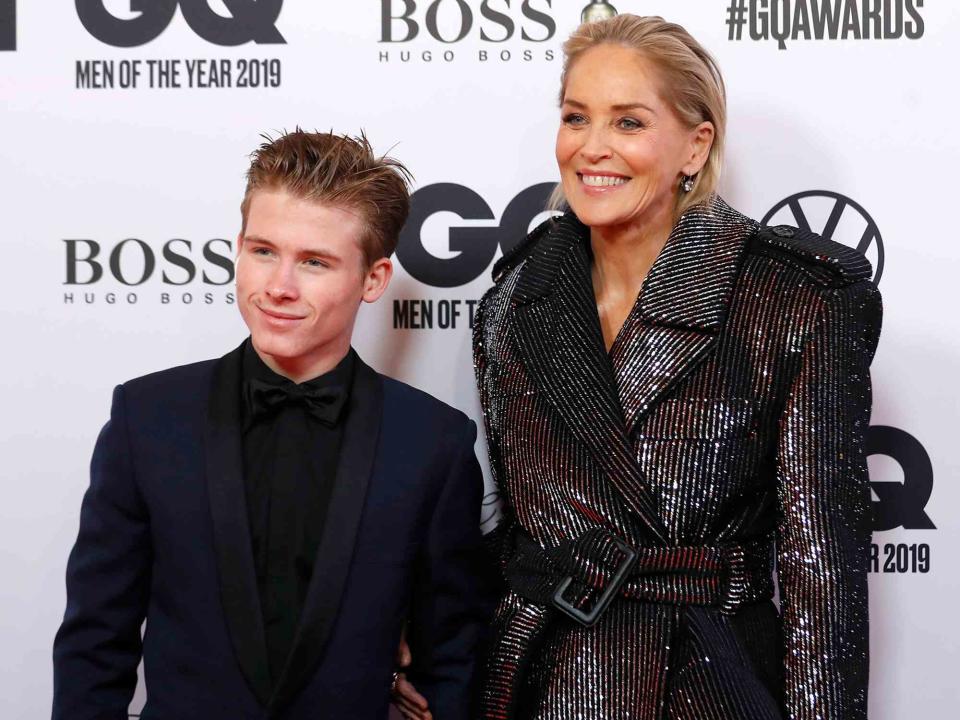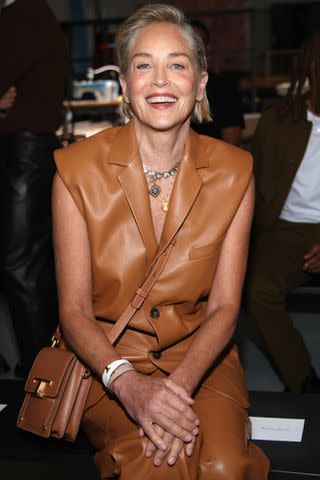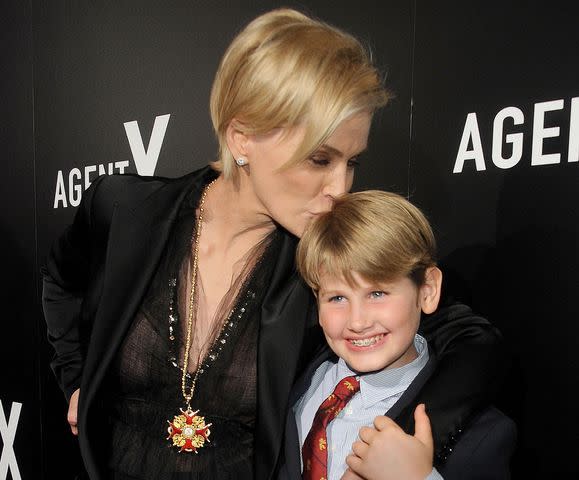Sharon Stone Says She's 'Grateful' She Didn't 'Prioritize Hollywood' Over Motherhood (Exclusive)
- Oops!Something went wrong.Please try again later.
Sharon Stone shares with PEOPLE how motherhood has affected her 22 years after a near-death health incident

Franziska Krug/Getty
Sharon Stone and her son Roan BronsteinFor Sharon Stone, her kids are her priority.
In 2001, the actress was given a 1 percent chance of living after a ruptured vertebral artery bled into her brain for nine days. Now 22 years later, the actress is revealing her new outlook on life and how motherhood has affected her.
"I’m grateful that I chose motherhood as a healthy approach to my life and that I didn’t prioritize Hollywood," she tells PEOPLE in this week's issue, "because they certainly didn’t prioritize me."
Most all all, Stone, 65, says she's "grateful" she adopted her sons — Roan, 23 Laird, 18, and Quinn, 17 — calling them "wonderful kids." "I’m grateful that I chose the things that I did choose," she says.
At the time of Stone's health incident, she was thriving both professionally and personally. She had received her first Oscar nomination for Casino five years prior. And months before, she had adopted Roan with her then-husband, newspaper editor Phil Bronstein.

Daniele Venturelli/WireImage
Sharon StoneFollowing the incident, Stone went through a dark period: her marriage fell apart (she and Bronstein divorced in 2004), and, she says, Hollywood stopped calling.
Recalling her initial recovery process, Stone says she was "stuttering" in the early stages and not "seeing correctly." She says she also suffered from memory loss for a long period.
"I lost everything," she says. "I lost all my money. I lost custody of my child. I lost my career. I lost all those things that you feel are your real identity and your life."
"I never really got most of it back," she adds, "but I’ve reached a point where I’m okay with it, where I really do recognize that I’m enough."

Gregg DeGuire/WireImage
Sharon Stone and son Laird in 2015Never miss a story — sign up for PEOPLE's free daily newsletter to stay up-to-date on the best of what PEOPLE has to offer, from celebrity news to compelling human interest stories.
Asked how she gained the courage to share her story, Stone explains, "I come from a very broken family. I grew up believing that taking care of everybody else was what I was supposed to do. It took me a long time to understand that I had a life of my own and that I didn’t have to fix it for everybody else, and that it was okay for me to receive care, for me to be enough as a disabled person. I feel proud of myself and proud of my accomplishments — from surviving to helping others survive."
Today, Stone's on the board of the Barrow Neurological Foundation, which supports the medical institute Stone’s brain surgeon Dr. Michael Lawton leads in Arizona, and is hosting its annual Neuro Night fundraiser on Oct. 27. Per its website, the Foundation's mission is "saving human lives through innovative treatment, groundbreaking, curative research and educating the next generation of the world’s leading neuro clinicians."
"She’s an inspiration to those who suffer from anything neurological,” says Lawton, whom Stone credits for saving her life.
For more about Stone, pick up this week's issue of PEOPLE, on newsstands Friday.
For more People news, make sure to sign up for our newsletter!
Read the original article on People.

